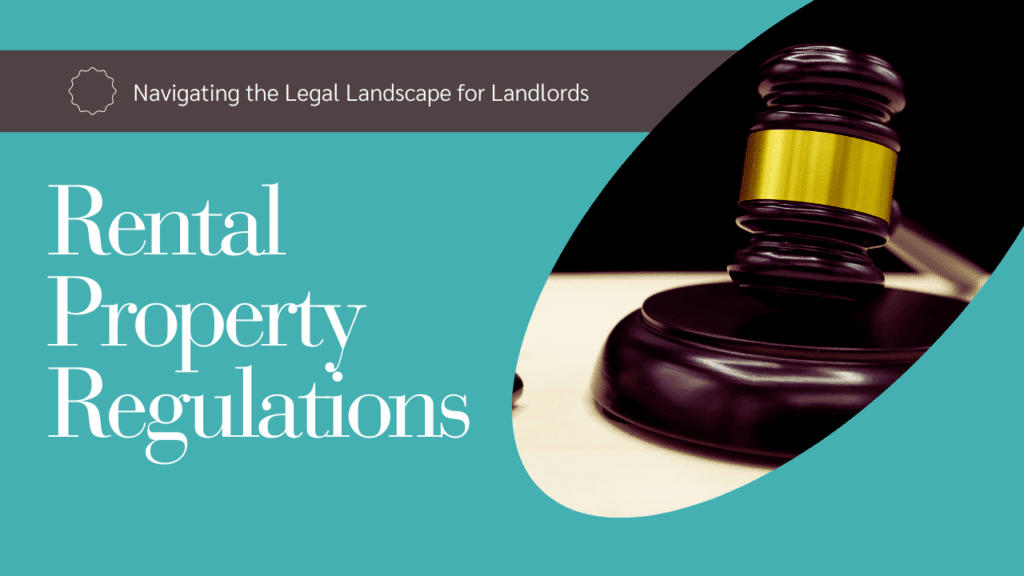
Most real estate investors in Florida will tell you that we remain a pretty landlord-friendly state. Rent control is outlawed by our state constitution. Evicting a tenant does not require a lot of the legwork that’s necessary in other states, and as long as you follow the state, federal, and local housing laws, you’ll find yourself enjoying an investment experience that doesn’t come with a lot of restriction or red tape.
It’s one of the reasons people love investing in rental properties here.
There are regulations that need your attention, however. We’re highlighting a few of the most important housing-related laws and property regulations that you need to know before you wade into the rental waters here.
It’s still easy to make a legal mistake, and often expensive. Let’s avoid those by understanding the laws and remaining in compliance.
Federal Housing Regulations: Know the Fair Housing Act and ADA
The two most important federal laws you need to know when renting out property of any kind are the Fair Housing Act and the Americans with Disabilities Act (ADA). It also helps to review the Fair Credit Reporting Act, which will come into play when you’re collecting information from applicants and tenants. There’s specific language that must be used when you reject a tenant for a property based on their credit.
Fair housing laws, however, are of particular importance, and you need to know how to navigate those.
Fair housing laws make it illegal to discriminate when you’re marketing your property, screening applications, or enforcing your lease with tenants. It’s critical that you’re consistent, and you need documented processes that prove you are treating everyone fairly and equally.
Legally, you cannot make decisions or take actions based on:
- Race
- Color
- Religion
- National origin
- Sex
- Familial Status
- Disability
Most landlords and rental property owners don’t set out to discriminate against people, but the perception can be there in the way you market, lease, and rent out your property.
The Americans with Disabilities Act is also important for real estate investors in Florida to understand. You’re legally required to make reasonable accommodations for people with disabilities. While the law does not actually require you to pay for a wheelchair ramp into a home, you still must allow your tenants who need that accomodation to make it.
Service and support animals are a major part of ADA laws, and it’s not always easy to distinguish service animals from companion animals. What’s an emotional support animal versus a therapy dog? It depends on their training and what they’re used for. You can ask questions about a companion animal and even ask for documentation. With service dogs, you cannot ask too many questions without violating the law.
What you really need to know is this: service and support animals are not pets. You can have a pet-free rental property, but you’ll still be required to allow service and support animals. You cannot charge tenants a pet fee or pet rent for those animals. The law does not see them as pets. They’re seen as accommodations.
Security Deposit Laws in Florida
You’ll be happy to know that Florida law does not limit the amount of money you can collect in a security deposit. That doesn’t mean you should ask for the whole farm.
Standard practice is to collect a security deposit that’s equal to a month of rent.
Beyond what you collect, there are a lot of details that must be considered when we’re talking about the collection and return of a resident’s security deposit.
You’re required to disclose in writing whether a security deposit will be held in an interest or non-interest bearing account. Security deposits do not need to be held in an interest-bearing account, but if they are, interest payments must be made both annually and at the termination of the tenancy. If you offer your tenants a renewal, you should pay interest on or before the one-year anniversary of the lease being executed.
Other information you have to provide includes:
- The rate and time of interest payments
- The address of the bank where the security deposit is held.
Florida law requires you to provide this information within 30 days of receiving a security deposit. Put this information in your lease agreement.
This is another odd little regulation that you might miss if you’re not paying attention: rental property owners must hold the security deposit in a Florida bank with a local branch office, even if you live elsewhere.
Florida law requires landlords to return a tenant’s security deposit within 15 days of move-out if there are no reasons to deduct money from that deposit. If you do plan to make deductions based on damage, cleaning costs, or past due accounts, you’ll have to return the remaining deposit and a detailed accounting within 30 days.
Eviction in Florida
Florida allows you to evict a tenant for a number of reasons.
- You can evict if there’s a lease violation they refuse to rectify.
- You can evict if you decide not to renew the lease agreement after the tenancy ends but the tenants refuse to move out.
- You can evict if there’s criminal activity at your property.
- You can evict if you decide to do something else with the property.
The most common reason for eviction, however, is nonpayment of rent. When this happens, you need to take a few steps before you go to court and file for an eviction.
The first step is to serve a Three Day Notice to Pay or Quit. The tenants will have three days to pay the overdue rent or leave the property. Hopefully, you’ll receive a full payment before the end of the three days, or the tenants will get in touch to talk about a payment plan. If you do not receive the rent and the tenants continue to occupy the property, the next step is filing eviction paperwork at your county courthouse. The clerk will have a Summons & Complaint served on your tenants, and they’ll have the opportunity to respond.
Either you will receive a default judgment or you’ll have a court date. Make sure you have all your documentation in hand when you go to court, including your lease agreement, a copy of the Three Day Notice, and the ledger or financial reports that verify what is owed. When you receive a judgment, you’ll be able to get a Writ of Possession and the tenants will be ordered to leave. If they still refuse to vacate the property, the sheriff will be called to remove them physically.
We always recommend you work with an attorney or a local property manager who understands Florida eviction law when you need to remove a tenant. The steps towards an effective eviction can be extremely nuanced, and you don’t want to waste time or money having to start the process over because a detail was missed.
Habitability Laws and Regulations
Keep your rental properties in a condition that complies with state and local building and health codes. Even if there is no specific building code that addresses the safety and habitability of your property, owners must ensure the exterior and structural foundation are in good, stable condition.
You need to provide access to heat, water, and plumbing. There must be sanitation. Check your window screens so you can be sure they are in reasonable condition. Many real estate investors don’t realize that owners are required to repair screen damage once per year.
Routine inspections and good tenant relationships will ensure all habitability laws are met and respected.
Landlord’s Right to Enter
In Florida, property owners are not prohibited from entering their rental property to make repairs, conduct inspections, and show the home. However, you are required to provide ample notice to your tenants.
Tenants cannot deny you access to the property, but you do have to provide at least 12 hours of notice if you’re going to be at the property for a repair. Twelve hours is the law, but we recommend providing at least 24 or 48 hours of notice when you can.
Establishing a Legally Compliant Lease Agreement
 Do you know where to find a Florida lease agreement? There are specific things you’ll need to include in your lease agreement to keep it legally compliant and enforceable in this state. You don’t want to download a template that isn’t specific to Florida. Your property will only be protected when you use a Florida-specific lease. Talk to a management company, a real estate attorney, or a local property organization such as the local chapter of NARPM if you need to get your hands on a strong lease.
Do you know where to find a Florida lease agreement? There are specific things you’ll need to include in your lease agreement to keep it legally compliant and enforceable in this state. You don’t want to download a template that isn’t specific to Florida. Your property will only be protected when you use a Florida-specific lease. Talk to a management company, a real estate attorney, or a local property organization such as the local chapter of NARPM if you need to get your hands on a strong lease.
These are only a few of the most important laws that you need to be aware of when you’re renting out property in Florida. Whether you’re a new landlord or an experienced investor, it’s important that you follow the laws carefully or risk the profitability and operations of your investment properties.
If you need some help, we’re here to provide it. Contact our team at Anchor Down Real Estate and Rentals.
